
A series of 19 wide-ranging duets between Sergey Senchuk, aka Tungu, who performs on voice, acoustic bass, field recording & sampling, and an impressive set of international improvisers, including Fred Lonberg-Holm (cello), Jaap Blonk (voice), Gunda Gottschalk (violin), Susan Alcorn (pedal steel guitar), Sainkho Namtchylak (voice), Xavier Charles (clarinet & processing), &c.
Out of Stock.
Quantity in Basket: None
Log In to use our Wish List
Shipping Weight: 3.00 units
EU & UK Customers:
Discogs.com can handle your VAT payments
So please order through Discogs
Sample The Album:
Sergey Senchuk-(Tungu) voice, acoustic bass, field recording, samples
Susan Alcorn-pedal steel guitar
Ulrike Brand-cello
Gunda Gottschalk-violin
Sainkho Namtchylak-voice
Jaap Blonk-voice
Fred Lonberg-Holm-cello
DJ Sniff aka Takuro Mizuta Lippit-turntables
Berit Jung-double bass
Hui-Chun Lin-cello
Guillaume Gargaud-acoustic guitar
Anna Jedrzejewska-piano, samples
Eric Jovet-vocals, effects, samples
Xavier Charles-clarinet, processing
Giuseppe Verticchio aka Nimh-electric guitar, synthesizer
Guylaine Cosseron-voice
Philippe Petit-buchla system 200
Jean-Marc Montera-Corsican catera, synthesizer, effects
Rene Lussier-electric guitar
Click an artist name above to see in-stock items for that artist.
UPC: 195269313975
Label: Public Eyesore
Catalog ID: 157
Squidco Product Code: 35336
Format: CD
Condition: New
Released: 2024
Country: USA
Packaging: Cardboard Gatefold
Recorded from March 2023 to June 2023.
"Behind Tungu is Sergey Senchuk, who plays voice, acoustic bass, field recording and sampling. His first album, he calls "abstract ambient", followed by two rhythmic albums and then he invited Aya Ogawa for a collaborative track, which was much to his liking, so he asked others to send a bit of music and create improvised music even when not in the same room. Ogawa isn't on this CD, but with find (among others, I am mentioning names I recognised, Renne Lussier, Fred Lonberg-Holm, DJ Sniff, Xavier Charles, Phillippe Petit, Sainkho Namtchylak, Giuseppe "Behind Tungu is Sergey Senchuk, who plays voice, acoustic bass, field recording and sampling. His first album, he calls "abstract ambient", followed by two rhythmic albums and then he invited Aya Ogawa for a collaborative track, which was much to his liking, so he asked others to send a bit of music and create improvised music even when not in the same room.
Ogawa isn't on this CD, but with find (among others, I am mentioning names I recognised, Renne Lussier, Fred Lonberg-Holm, DJ Sniff, Xavier Charles, Phillippe Petit, Sainkho Namtchylak, Giuseppe Verticchio, Jaap Blook, Guillaume Garguad and others, 19 in total.
How does one approach such a release? Cover in hand, looking at names and instruments? There is a variety of them here: turntables, bass, voice, sampling, clarinet, electric guitar, violin and so on. Because Tungu plays various himself, figuring out who's doing what here is always challenging. Tracks are typically between three and five minutes, which means there is entirely some speed and variation in this album, but one also gets easily lost in the melee.
Many of these pieces are traditional improvised affairs, with some exceptions, adding to further confusion. It's, however, also a most enjoyable album, with the duet with Jaap Blonk my favourite one, with voice, guitar and cello merging into almost a pop song. It's only sometimes my cup of tea, but indeed an excellent, highly varied album."-Frans de Waard, Vital Weekly
, Jaap Blook, Guillaume Garguad and others, 19 in total.How does one approach such a release? Cover in hand, looking at names and instruments? There is a variety of them here: turntables, bass, voice, sampling, clarinet, electric guitar, violin and so on. Because Tungu plays various himself, figuring out who's doing what here is always challenging. Tracks are typically between three and five minutes, which means there is entirely some speed and variation in this album, but one also gets easily lost in the melee. Many of these pieces are traditional improvised affairs, with some exceptions, adding to further confusion. It's, however, also a most enjoyable album, with the duet with Jaap Blonk my favourite one, with voice, guitar and cello merging into almost a pop song. It's only sometimes my cup of tea, but indeed an excellent, highly varied album."-Frans de Waard, Vital Weekly
Get additional information at Vital Weekly
Artist Biographies
• Show Bio for Sergey Senchuk "Sergey Senchuk [Born in 1999] is a bassist and electronic musician from Ukraine. Under the banner of Tungu, he collaborates with adventurous improvisers from all over the world." ^ Hide Bio for Sergey Senchuk • Show Bio for Susan Alcorn "Susan Alcorn (born 1953) is an American composer, improvisor, and pedal steel guitarist. Having started out playing guitar at the age of twelve, she quickly immersed herself in folk music, blues, and the pop music of the 1960s. A chance encounter with blues musician Muddy Waters steered her towards playing slide guitar. By the time she was twenty-one, she had immersed herself in the pedal steel guitar, playing in country and western swing bands in Texas. Soon, she began to combine the techniques of country-western pedal steel with her own extended techniques to form a personal style influenced by free jazz, avant-garde classical music, Indian ragas, Indigenous traditions, and various folk musics of the world. By the early 1990s her music began to show an influence of the holistic and feminist "deep listening" philosophies of Pauline Oliveros. Though mostly a solo performer, Alcorn has collaborated with numerous artists including Pauline Oliveros, Eugene Chadbourne, Peter Kowald, Chris Cutler, Joe Giardullo, Caroline Kraabel, Earl Howard, Le Quan Ninh, Sean Meehan, Joe McPhee, LaDonna Smith, Mike Cooper, Walter Daniels, Ellen Fullman, Jandek, George Burt, Janel Leppin, Michael Formanek, Ellery Eskelin, Fred Frith, Maggie Nicols, Evan Parker, Johanna Varner, Zane Campbell and Mary Halvorson." ^ Hide Bio for Susan Alcorn • Show Bio for Ulrike Brand "Ulrike Brand, born in Germany, was introduced to contemporary cello-playing by Siegfried Palm. At the Music-High-School of Cologne she studied with Peter Eötvös, Mauricio Kagel and the Amadeus String-Quartet. Since 1985 she has partecipated as a soloist in the major festivals of contemporary music in Italy, Germany, Switzerland, France, Luxembourg, Greece, Slovacchia, Mexico, Russia and Uruguay. In 1986 she settled in Italy, where in 1987 she initiated the festival of the Quaderni Perugini di Musica Contemporanea, that she directed together with the artist Alfonso Fratteggiani Bianchi until 1997. In 2011 she moved to Berlin, where she actually lives and works. She has worked closely with John Cage, as well she has commissioned and premiered works by several composers, among others: Christian Wolff, Barbara Monk-Feldman, Federico Incardona, Graciela Paraskevaidis, Samir Odeh-Tamimi, Joachim Heintz, Stefano Trevisi, Cheol-Ha Park, Karen Odrobna Gerardi, Steven M. Miller, Marcello Fera, Giulio Castagnoli, Giovanni Damiani, Marco Lombardi, Silvia Colasanti, Gerolamo Deraco, Federico Gardella, Enrico Correggia, Alessandra Ravera, Eckart Beinke, Gwyn Pritchard, Stefan Streich, Martin Daske, Rainer Rubbert, Charlotte Seither, Laurie Schwartz. She realized radio broadcasting productions in Italy, Swiss, Germany, France, Uruguay and Norway. Since 2002 she has been Visiting Professor at the University of the Arts of Bremen (D). She has given lectures and masterclasses at the Escuela Universitaria de Musica di Montevideo (UY) as well as at the Universities of Bergen (NO), Oldenburg (D), College of Santa Fe (USA), Trinity Laban Conservatoire London (GB), John Cabot University Rome (I), Weissensee Kunsthochschule Berlin (D), Hochschule f. Musik, Theater und Medien Hannover (D) and the Music Conservatories of Perugia and Bolzano (I). For the Editor L'Epos (Palermo) Ulrike Brand has curated two volumes about the work of John Cage and Giacinto Scelsi. Her focus is on multimedial projects between conceptual sound-exploring, improvisation and performance. In this context she is working with performers as well as with visual artists and choreographers. In 2015 she received the Research Grant by Berliner Senat and in 2016 the Scholarship Künstlerhaus Wiepersdof by the Ministry of Cultural Affairs Brandenburg. Ulrike Brand lives in Berlin." ^ Hide Bio for Ulrike Brand • Show Bio for Gunda Gottschalk "Gunda Gottschalk plays improvised and contemporary music and combines her musical work with other art forms such as dance, theater, film, composition, visual art and literature. Born in 1969. Lives in Wuppertal, Germany. Classical violin studies with Johannes Prelle and Susanne Imhof at the State Hochschule for Music in the Rhineland. Further master classes and private studies with Stefan Picard, Antje Weithaas, Sascha Bron and Angelika Budde. Since 1991, Gunda Gottschalk has been a member of Partita Radicale, a quintet for new and improvised music. Besides developing original improvisation cycles, Partita Radicale became known to a broader audience through their silent movie programs with live music, music theater productions and collaborations with composers. In 1994/95 the violinist met the bassist Peter Kowald, who during this year carried out his project "365 Tage am ORT" (365 Days in Place) in Wuppertal. She performed in Peter Kowald's Ort-Ensemble and with important international soloists for improvised music such as Joelle Leandre, Carlos Zingaro, Even Parker. 1995-2002 Together with Xu Feng Xia she made up the core trio of Peter Kowald's "Global Village" Ensemble, which brought together musicians from radically different cultural heritages. In ensembles ranging from trio to sextet, "Global Village" concertized in Europe and the USA. Among the many guest artists collaborating with the trio were Jin Hi Kim, Savina Yannatou, Pamela Z, Jeanne Lee, Otomo Yoshihide, Le Quan Ninh. Since 1995 Gunda Gottschalk has worked with the Belgian bassist Peter Jacquemyn. Their duo-CD "e pericoloso sporgersi" was awarded a prize in the young artist forum of the international Society for New Music and Ensemble Modern. In 1998 the French pianist Christine Wodrascka founded the Trio "KRIZDA" with Isabelle Duthuit and Gunda Gottschalk. Together with Thomas Beimel, Gunda Gottschalk received a work and production stipend in 2001 from the Film Foundation of North Rhine - Westphalia which was used to realize the radio play "Das Paradies" (Paradise). Solo tours in 2002 and 2003 took the musician all over the USA. There she played with William Parker, Susie Ibarra, Assif Tsahar, Michael Zerang, Oliver Lake and Fred Frith among many others. Gunda Gottschalk has been well represented on festivals of contemporary and improvised music all over Europe and is a regular guest at the avant-garde festival "visions" in New York." ^ Hide Bio for Gunda Gottschalk • Show Bio for Sainkho Namtchylak "Sainkho Namtchylak is an experimental singer, born in 1957 in a secluded village in the south of Tuva. She is proficient in overtone singing; her music encompasses avant-jazz, electronica, modern composition and Tuvan influences. In Tuva, numerous cultural influences collide: the Turkic roots and culture it shares with Central Asian states, the Xinjiang Uyghur Autonomous Region, Bashkortostan and Tatarstan; the strong Mongolic cultural influence and traditions it shares with Mongolia, Inner Mongolia, Buryatia and Kalmykia; the cultural influences from the various Siberian nomadic ethnic groups such as Samoyeds, Yeniseians, Evenks and from the Russian Old Believers, the migrant and resettled populations from Ukraine, Tatarstan and other minority groups west of the Urals. All of these, to extents, impact on Namtchylak's voice, although the Siberian influences dominate: her thesis produced while studying voice, first at the University of Kyzyl, then in the Gnesins Institute in Moscow during the 1980s focussed on Lamaistic and cult musics of minority groups across Siberia, and her music frequently shows tendencies towards Tungus-style imitative singing. Being the daughter of a pair of schoolteachers, she grew up in an isolated village on the Tuvan/Mongolian border, exposed to the local overtone singing - something that was generally reserved for the males; in fact, females were actively discouraged from learning it (even now, the best-known practitioners remain male, artists like Huun-Huur-Tu and Yat-Kha). However, she learned much of her traditional repertoire from her grandmother, and went on to study music at the local college, but she was denied professional qualifications. Quietly she studied the overtone singing, as well as the shamanic traditions of the region, before leaving for study further in Moscow (Tuva was, at that time, part of the U.S.S.R.). Her degree completed, she returned to Tuva where she became a member of Sayani, the Tuvan state folk ensemble, before abandoning it to return to Moscow and joining the experimental Tri-O, where her vocal talents and sense of melodic and harmonic adventure could wander freely. That first brought her to the West in 1990, although her first recorded exposure came with the Crammed Discs compilation Out of Tuva. Once the Soviet Union had collapsed, she moved to Vienna, making it her base, although she traveled widely, working in any number of shifting groups and recording a number of discs that revolved around free improvisation - not unlike Yoko Ono - as well as performing around the globe. It was definitely fringe music, although Namtchylak established herself very firmly as a fixture on that fringe. In 1997 she was the victim of an attack that left her in a coma for several weeks. Initially she thought it was some divine retribution for her creative hubris, and seemed to step back when she recorded 1998's Naked Spirit, which had new age leanings. However, by 2000 she seemed to have overcome that block, releasing Stepmother City, her most accessible work to date, where she seemed to really find her stride, mixing traditional Tuvan instruments and singing with turntables and effects, placing her in a creative firmament between Yoko and Björk, but with the je ne sais quoi of Mongolia as part of the bargain. A showcase at the WOMEX Festival in Berlin brought her to the attention of many, and in 2001 a U.S. tour was planned. After graduating, Namtchylak worked with several ensembles: the Moscow State Orchestra; the Moscow-based jazz ensemble Tri-O (since 1989); School of Dramatic Art under the direction of Anatoly Vasiliev (Moscow), various orchestras in Kyzyl, the Tuvan 'folkloric orchestra'-a far less sanitised example of folk baroque than, say, existed in pre-independence Kazakhstan-that has housed many of Tuva's other important singers. However, for several years Namtchylak annually invited foreign musicians to Tuva to promote Tuvan culture. Based in Vienna, Namtchylak sculpted Stepmother City to reflect her ambivalent feelings about European metropolis. Calling herself "first and foremost a woman from the Steppes," Namtchylak's first musical inspiration came from her nomadic grandmother, who would sing lullabies for hours. She grew up in a culture where people just sing when they feel like it-singing when they're happy and singing when they're sad. Denied professional credentials from a local college where her explorative nature led her toward forbidden male-dominated overtone singing styles, Namtchylak transferred to Moscow where she discovered Russian improvisation and where she also continue to study about vocal techniques of Siberian lamaistic and shamanistic traditions. Audiences are astounded by the diversity of sounds Namtchylak can produce with her voice, from operatic soprano to birdlike squawks, from childlike pleas to soulful crooning; which at various moments elicit comparisons to Zap Mama, Patti Smith, Billie Holiday, and Nina Hagen. In 1997, Namtchylak was horrifically attacked by Tuvinian racketeers which left her in a coma for two weeks. Again, sources regarding this contradict - others maintain that she underwent surgery for a severe malignant brain tumor; regardless, 1997 marked an appreciable change in her life. Since then, she has been resident in exile in Vienna, and has also recorded more prolifically as a solo artist - although she has released over thirty albums in the past twenty years, only seven have been entirely solo. Namtchylak claims that music and spirituality are related by desire, or the tension that yells to reawaken people. Eager to take part in the process of remembering what has been forgotten, Stepmother City presents itself like a map, proposing routes to connect Western physicality with Eastern spirituality.[2] In 2005, the Italian publishing house Libero di Scrivere released a book of poetry Karmaland. In 2006 in Saint Petersburg, a book Chelo-Vek (a play on words in Russian, conflating "chelovek" meaning "person" and, though the hyphen, obsoletism "chelo" meaning "front" or "forehead" and "vek" meaning "age" or "eon" or "century", into something like "front-eon") was published in Russian, Tuvinian and in English. in 2016, she released "like a bird or spirit, not a face", an album produced by Grammy-winner Ian Brennan (music producer, author) and featuring members of Tinariwen." ^ Hide Bio for Sainkho Namtchylak • Show Bio for Jaap Blonk "Jaap Blonk (born 1953 in Woerden, Holland) is a self-taught composer, performer and poet.He went to university for mathematics and musicology but did not finish those studies.In the late 1970s he took up saxophone and started to compose music.A few years later he discovered his potential as a vocal performer, at first in reciting poetry and later on in improvisations and his own compositions. For almost two decades the voice was his main means for the discovery and development of new sounds.From around the year 2000 on Blonk started work with electronics, at first using samples of his own voice, then extending the field to include pure sound synthesis as well.He took a year off of performing in 2006. As a result, his renewed interest in mathematics made him start a research of the possibilities of algorithmic composition for the creation of music, visual work and poetry. As a vocalist, Jaap Blonk is unique for his powerful stage presence and almost childlike freedom in improvisation, combined with a keen grasp of structure. He has performed around the world, on all continents. With the use of live electronics the scope and range of his concerts has acquired a considerable extension. Besides working as a soloist, he collaborated with many musicians and ensembles in the field of contemporary and improvised music, like Maja Ratkje, Mats Gustafsson, Joan La Barbara, The Ex, the Netherlands Wind Ensemble and the Ebony Band. He premiered several compositions by the German composer Carola Bauckholt, including a piece for voice and orchestra. A solo voice piece was commissioned by the Donaueschinger Musiktage. On several occasions he collaborated with visual computer artist Golan Levin, for the Ars Electronica Festival. Blonk's work for radio and television includes several commissioned radio plays.He also makes larger-scale drawings of his scores, as well as visual poetry, which is being exhibited. He has his own record label, Kontrans, featuring a total of 25 releases so far. Other Blonk recordings appeared on various labels, such as Staalplaat, Basta, VICTO, Ecstatic Peace, Monotype Records, Terp and Elegua Records.His book/CD 'Traces of Speech' was published in 2012 by Hybriden-Verlag, Berlin. Forthcoming is a sequel with the title "Traces of Cookery".A comprehensive collection of his sound poetry came out as a book with 2 CDs in 2013, entitled "KLINKT"." ^ Hide Bio for Jaap Blonk • Show Bio for Fred Lonberg-Holm "Fred Lonberg-Holm (born 1962) is an American cellist based in Chicago. He relocated from New York City to Chicago in 1995. Lonberg-Holm is most identified with playing free improvisation and free jazz. He is also a composer of concert works. As a session musician and arranger, he is credited on many rock, pop, and country records. Lonberg-Holm currently leads the Valentine Trio, with Jason Roebke (bass) and Frank Rosaly (drums). This jazz trio performs original compositions as well as tunes by both jazz composers (e.g. Sun Ra) and pop songwriters (e.g. Jeff Tweedy, Syd Barrett). The group released its first album Terminal Valentine, in 2007, which was reviewed by AllAboutJazz critic Nils Jacobson. He coordinates and directs performances of his Lightbox Orchestra, an improvising ensemble with a flexible, ever-changing membership. Lonberg-Holm does not play an instrument in this group, but rather conducts its non-idiomatic improvisations via the "lightbox" and by holding up handwritten signs. The lightbox contains a light bulb for each musician which Lonberg-Holm switches on or off to suggest when they should play. Collective groups of which Lonberg-Holm is a member include Terminal 4 who released an album, in 2003, called When I'm Falling that received four and a half stars, and AMG Album Pick by Allmusic, and it was reviewed by Allmusic's Joslyn Layne, The Boxhead Ensemble, Pillow, the Lonberg-Holm/Kessler/Zerang trio (with Kent Kessler and Michael Zerang), and the Dörner/Lonberg-Holm duo (with Axel Dörner). Among groups led by other people, he is a member of the Vandermark 5, the Joe McPhee Trio, the Peter Brötzmann Chicago Tentet, Keefe Jackson's Fast Citizens, and Ken Vandermark's Territory Band. When he lived in New York, Lonberg-Holm frequently collaborated with the rock group God Is My Co-Pilot pianist and composer Anthony Coleman as well as multi-instrumentalist Paul Duncan of Warm Ghost. In Chicago, he has worked with Jim O'Rourke, Bobby Conn (on "Llovessonngs" [1999] and "The Golden Age" [2001]), The Flying Luttenbachers, Lake Of Dracula, Wilco, Rivulets, Mats Gustafsson, Sten Sandell, Jaap Blonk, John Butcher, and a great many others. Lonberg-Holm's concert works have been premiered by William Winant, Carrie Biolo, the Austin New Music Co-Op, Subtropics Ensemble, Duo Atypica, the Schanzer/Speach Duo, New Winds, Paul Hoskin, Kevin Norton, the E.S.P. Ensemble, and others. His scores for dance have been performed at the Brooklyn Academy of Music and Dance Theater Workshop as well as many other venues. He is a former composition student of Anthony Braxton and Morton Feldman. He performed improvised music in the role of a troubled composer who finds inspiration in the love of a couple he spots on the street in a short film for the Playboy channel." ^ Hide Bio for Fred Lonberg-Holm • Show Bio for Hui-Chun Lin "Hui-Chun Lin (林惠君), Cello solo player, Performer, composer. born 1979 in Taiwan. Classical piano and cello education. Studied with Professor Peter Bruns at Dresden Conservatory. Postgraduate studies in improvisation with Tilo Augsten at the University of Music and Theatre Leipzig. Worked as solo cellist and ensemble musician Improvisation, theatre music, contemporary music, dance performance, classical music, world music and cello solo with live electronics. Participated in a workshop with "Yo-Yo Ma & The Silk Road Ensemble" at Carnegie Hall in New York 09/2006, also participated the workshop "Dave Douglas: Composition and Improvisation in New York 02/2010" Leipziger Jazztage 2007 (jazz festival) with "Beat Freisens Spelunkenorchester", Conducted an improvisation class at a middle school in Tainan/Taiwan 2008/09 "Artist in Residence" in Cité des Arts Paris 07/2010-01/2011. "Codes" Festival of Traditional and Avant-garde Music in Lublin (Poland) 05/2010. The CD Production "The Ballad Of Li Qingzhao And Su Dongpo" won the prize in der Kempener Paterskirche. 08/2015 "Streitraum Extra" with Laio Yiwu at Schaubühne Berlin, 12/2015 Dance/Music Improvisation "Suivre" with Jenny Haack, Jenny Döll, Bettina Neuhaus Musik: Michael Vorfeld - Perkussion, Barnaby Tree, 01/2016. "Improvisation XChange 2016" with Jenny Haack 07/2016 "RARA Festival" Sicily Italy 7/2016 Orchestral Whifftracks - Musik & Geruch, with Berlin Improvisers Orchestra, 09/2016 Hui-Chun Lin is a musician who moves fluidly among work in avantgarde music, world music, jazz and improvisation and also performance. Her repertoire encompasses traditional, experimental and classical music in equal measure. Her musical work is concerned above all with sounding out the intersections, boundaries and connections among genres, epochs and cultures. She is now also a musician, performer and cello teacher in Berlin, since 2011. Since 2015, she starts to produce her own music, working with the Berlin Music Label "Maybee Records", and making music albums with variable musicians." ^ Hide Bio for Hui-Chun Lin • Show Bio for Guillaume Gargaud "Guillaume Gargaud (Born in France in 1979) is a composer and improvisational guitarist. He's already released about ten albums and composed many musics for contemporary dance. He lives in Le Havre in France where he also teaches music. He started playing guitar when he was 15, after he was injured in a road accident and forced to stay home for a year. In 1997, in addition to his cabinetmaking studies where he practiced sculpture, marquetry, restoration of antique furniture and art drawing, he worked on his instrument on his own and performed in different bands. In 1999, after passing his exams he decided to dedicate himself to music and he entered the professional course of IIMA lead by Laurent Rousseau. He then studied composition, musical analysis, jazz, contemporary and improvised music. During his studies he experimented with multiple forms of music (free jazz, bebop...). In 2003 , he became a permanent member of the artist collective Zwann eï . He composes for performances, installations, sound poetry and movies. He realises visual creations and integrates laptop ( Ableton, Max msp) in his sound research system which was until then made of pedals, analog effects and objects. His implication in the collective will give him the opportunity to discover a new vision of writing and of the interactive relationships connected to picture, body and to literature. In 2007 he decided to stop his tours to devote himself to his solo music and to get more involved into teaching by creating some improvised music workshops. Many trips, projects, live performances and recording will follow. Work with Loïs Laplace (Cycling 74), Federico Barabino (Buenos aires), Yumi Fujitani (danse butô, Paris), Les Conserveries mémorielles (Québec), Marc Roques (Zooloop, Paris), Sequana Deux (Contemporary Art from Le Havre to Paris "ABRUIT"), Jannick Schou (Denmark), Raphaël Maze and Francois Lebègue ("Light Cone " experimental cinema Paris), Nozal cube (Le Havre), The Future Ethnic Comparative Research Lab. (Paris), La cité de la musique (Paris), Jean Luc Petit,(FR) Sandrine Lascaux (Lecturer, Le Havre University), JP.Gomez, JP Buisson (Le Havre) M.Thouseau and V.Sauve (Paris), Blaise Merino (London), Mangane (Senegal), P.Sigmoon (Cambodia), Jack Wright (US), Raymond Alan Kaczynski, Mike Majkowski,(Berlin), Zachary Darrup (US) . In 2008, he released his first solo album "Le Lieu" produced by Dirty Demos (UK), then in 2009 two CDs "She" with Utech Records (USA) and "Here" with Kvist Records (USA). And in 2011" Lost Chords" with Dead pilot Records UK." ^ Hide Bio for Guillaume Gargaud • Show Bio for Xavier Charles "The work of clarinetist Xavier Charles ranges from noise to electro-acoustic via sound poetry. He has played in numerous new music festivals in France and abroad. In his work with groups and collectives, he has also collaborated with Martin Tetrault, The Ex, Ingar Zach, Pierre Berthet, Axel Dörner, Ivar Grideland, John Butcher, Jacques Di Donato, Frédéric Le Junter, Otomo Yoshihide, Getachew Mekuria, Christian Wallumrod, Emmanuelle Pellegrini, Lionel Marchetti, Jean-Philippe Gross, Michel Doneda and Frédéric Blondy. Different collectifs (Dans Les Arbres, Ouie-Dire, ONCEIM, No Spaguettitti Edition, Chris Burn Ensemble, Atmosphérique). Currently his musical research ranges from performance on the clarinet to the installation of vibrating speakers, at the edge of improvised music, noisy rock and electro-acoustic sound. He's deeply involved in the music world as an organizer of the festival "Densités". " ^ Hide Bio for Xavier Charles • Show Bio for Philippe Petit "I studied Electroacoustic music at the CNRR Conservatory where I specialised in multi-channelled diffusion (Acousmatic spatialisation) and Modular Synthesis. Using Buchla System 200, Serge 73/75 and a modified EMS Synthi A analog Synthesizers to create my "Electronic abstractions" and Plastic sound-objects.Sculpting sound like a craftsman, without restraint or sometimes "on the tip of the hands", I am interested in the importance of the compositional gesture, to favor the live touch without repetitions, by impulse, in a very corporeal way. VISCERALITY ! also play various instruments or devices, though most notably a Prepared Piano-Soundboard + an Electric Psalterion + Hackbrett Cymbalum + Guitars + turntables as well as Theremin + Soline and Roland Fantom G6 synths and computer to build up electronic layers, process acoustic and field recordings.On top of those, I like to move various glasses, pieces of wood, stones, or percussive objects, as well as taking advantage of vinyl material to fondle released sounds engraved on unique vinyls in order to manipulate them manually on stage. Relying on electricity/amplification to produce, manipulate, work on sound-material, but trying my best to explore various genres and make sure that each of my albums differs from the previous one, trying to avoid routine and surprise my listeners. Not musically trained/educated I lie outside the Classical genre but my scores incorporate traditional classical components in a predominantly unconventional manner which recently allowed me to being asked by Iancu Dumitrescu & Ana Maria Avram to join forces as a soloist in their Hyperion Ensemble + being invited by Jean-Paul Dessy (Musiques Nouvelles ensemble) and Raoul Lay (Ensemble Télémaque) to become in charge of electronics/turntables in their ambitious E. C. O. (European Chamber Orchestra) formation comprising of 33 soloists... Fortunate enough to work with what people call a dream-team of collaborators: joining Lydia Lunch, Murcof, The European Contemporary Orchestra (E.C.O.), Mark Cunningham (MARS), Cindytalk, Orkest De Ereprijs, Audrey Chen, Mia Zabelka, Iancu Dumitrescu's Hyperion Ensemble, Stephen O'Malley, Yannick Barman, PAS or Faust onstage and-or in studio. Besides I did some recordings with: Eugene Robinson (Oxbow), Edward Ka-Spel (Legendary Pink Dots), Simon Fisher Turner, Kumo, Scott McCloud (Girls Against Boys), Cosey Fanni Tutti (Throbbing Gristle), My Brightest Diamond, Sybarite, Foetus, Pantaleimon, Graham Lewis (Wire), Barry Adamson, Andy Diagram, Scanner, Machinefabriek, Mira Calix, Kammerflimmer Kollektief, Justin K. Broadrick, James Johnston (Gallon Drunk/Bad Seeds/Faust), ASVA, Jarboe, Jad Fair, Martin Dupont and many more... I am also the founder (w/ Hervé Vincenti) of the international collective Strings Of Consciousness A journalist for various magazines and radio DJ since 1983, as well as a musical activist, I have celebrated 35+ years of sharing/transmitting my musical passions.Since the early 2000s I have been introduced as a " musical travel agent " and been performing the world, playing festivals all over Europe, Russia, Poland, Canada, USA, Mexico, Australia & Asia... Feeling lucky to release on several international labels such as Oscillations, Aural Terrains, Opa-Loka, Southern UK, Monotype, Alrealon Musique, Beta Lactam Ring, Sub Rosa, HomeNormal, Important, HelloSquare, Public Eyesore, Utech, Staubgold, etc...(see the section "Friends/Collaborators" above in the Menu bar for a detailed list + links). I like to perform in galleries or other atypical (non-musical) places and acts like a sonographer. Thus my sound-designs have been heard for various F.R.A.C. in France, and also internationally, most notably in MOMA (New York), MACBA (Barcelone), E_Werk/Transmediale (Berlin), Center for Contemporary Arts (Glasgow), Galerie Moderno (Leeds), Ars Electronica (Linz), Synch Festival (Athèns), Société des Arts Technologiques (Montréal), Recycl'ART (Bruxelles), "Transcultural Mapping" @ RIXC from Riga, "Numeris Causa" Biche de Bere Gallery (Paris), Sintesi (Citta Della Scienza - Naples), Arborescence (Aix-en-Provence), Instituto Cultural Poblano (Puebla - Mexico), Eléctron (Genève), Alfa Art Gallery (New-York), CocART - CSW (Torun - Pologne), M.A.K. (Vienne), Reina Sofia National Museum (Madrid), Borusan Center For Arts (Istanbul), Tranzit Art Gallery (Bucharest), or Art-O-Rama the rendez-vous for Contemporary Art in France... I am aso the man behind the cult labels Pandemonium Rdz. and BiP_HOp." ^ Hide Bio for Philippe Petit • Show Bio for Rene Lussier "René Lussier (born April 15, 1957) is a musician based in Quebec, Canada. He is a composer, guitarist, bass guitarist, percussionist, bass clarinetist, and singer. Lussier has collaborated with such figures as Fred Frith, Chris Cutler, Jean Derome and Robert M. Lepage. His work, which combines elements from all major genres, is often referred to within the discourse of New Music, or Musiques Actuelles, in French. Born in Montreal, Lussier began his musical career in 1973 in Chambly as part of the progressive rock group Arpège. From 1976 to 1980, he was a member of the Montreal folk-progressive group Conventum, led by André Duchesne. Lussier was also a member of the groups Quatour de l'Emmieux and les Reins, Nébu and La G.U.M in the late 1970s and early 1980s. In 1986 he joined Duchesne's Les 4 Guitaristes de l'Apocalypso-Bar. He began doing soundtrack work in 1979, via a collaboration with Duchesne on the music for a short film called Tanobe. Lussier has written or co-written the scores to more than 35 films, including Chronique d'un génocide annoncé, a documentary by Danièle Lacourse and Yvan Patry about the Rwandan genocide. Lussier played guitar for the popular singer Pauline Julien between 1982 and 1984, though he also worked on esoteric music that blurred distinctions between progressive rock, jazz, improvisation, modern composition, and circus music. His first solo album, Fin du travail (version I), was released in 1983 and consolidated his reputation as a quirky, humorous and talented guitarist-composer. He has collaborated extensively with Derome and Lepage and has recorded as a member of the Fred Frith Guitar Quartet. Lussier is featured prominently in Step Across the Border (1990), a documentary feature film by Nicolas Humbert and Werner Penzel about the work and travels of Frith. Lussier was also a member of Frith's band Keep the Dog (1989-1991). In 1983, Lussier co-founded the Ambiances Magnétiques record label and recording collective with Derome, Lepage and Duchesne, and produced an extensive body of work in this environment. His best known work, Le trésor de la langue (1989), was created during this period. The album interspersed music with taped recordings of Quebec residents discussing the importance of the French language. It won the Grand Prix Paul-Gilson award in 1989. In the late 1990s, Lussier recorded two albums for solo guitar and a pair of collaborations with Martin Tétreault which reflected an interest in the history of musique concrète and electroacoustic music composition and theory." ^ Hide Bio for Rene Lussier
7/1/2025
Have a better biography or biography source? Please Contact Us so that we can update this biography.
7/1/2025
Have a better biography or biography source? Please Contact Us so that we can update this biography.
7/1/2025
Have a better biography or biography source? Please Contact Us so that we can update this biography.
7/1/2025
Have a better biography or biography source? Please Contact Us so that we can update this biography.
7/1/2025
Have a better biography or biography source? Please Contact Us so that we can update this biography.
7/1/2025
Have a better biography or biography source? Please Contact Us so that we can update this biography.
7/1/2025
Have a better biography or biography source? Please Contact Us so that we can update this biography.
7/1/2025
Have a better biography or biography source? Please Contact Us so that we can update this biography.
7/1/2025
Have a better biography or biography source? Please Contact Us so that we can update this biography.
7/1/2025
Have a better biography or biography source? Please Contact Us so that we can update this biography.
7/1/2025
Have a better biography or biography source? Please Contact Us so that we can update this biography.
7/1/2025
Have a better biography or biography source? Please Contact Us so that we can update this biography.
Track Listing:
1. The tasting of sensitivity (w/ Sainkho Namtchylak) 02:02
2. Erasing (w/ Ulrike Brand) 02:56
3. Emergence from sleep (w/ Philippe Petit) 02:48
4. Riviere seche (w/ Xavier Charles) 04:32
5. Nightingale (w/ Susan Alcorn) 03:03
6. Where is my savagery? (w/ Guylaine Cosseron) 03:30
7. Instant d'un jardin (w/ Eric Jovet) 04:55
8. Drowning in balance (w/ Hui-Chun Lin) 03:17
9. It's great to have a spot where you cannot be found (w/ Sainkho Namtchylak) 03:07
10. Verification code (w/ Anna Jedrzejewska) 04:19
11. Masque Bete N obj 217 (w/ Jean-Marc Montera) 05:07
12. Hand in the mouth (w/ DJ Sniff) 04:30
13. Whip/ Pop (w/ Fred Lonberg-Holm) 02:22
14. JSPS (w/ Jaap Blonk) 02:30
15. Reponds moi #2 (w/ Rene Lussier) 05:08
16. A few minutes before oblivion (w/ Giuseppe Verticchio) 05:01
17. First Approach (w/ Gunda Gottschalk) 03:21
18. Four Reasons To Change The Mood (w/ Guillaume Gargaud) 04:36 Zeitdichte (w/ Berit Jung) 02:52
Improvised Music
Free Improvisation
Electro-Acoustic
Electro-Acoustic Improv
Lussier, Rene
Blonk, Jaap
Unusual Vocal Forms
Field Recordings
Duo Recordings
Staff Picks & Recommended Items
New in Improvised Music
New in Experimental & Electronic Music
Recent Releases and Best Sellers
Search for other titles on the label:
Public Eyesore.


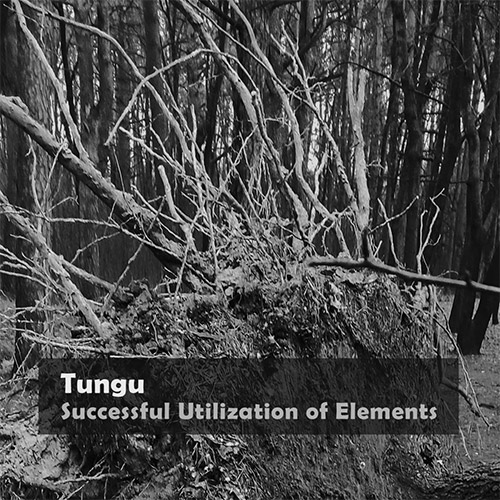


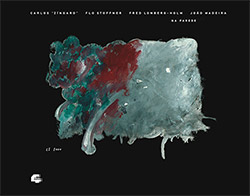
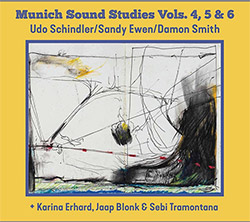

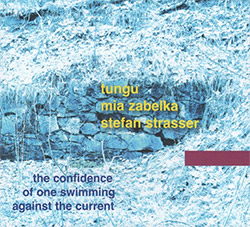




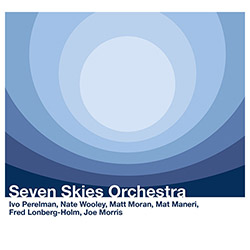

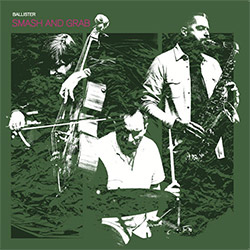
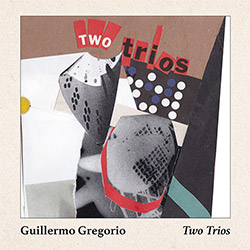
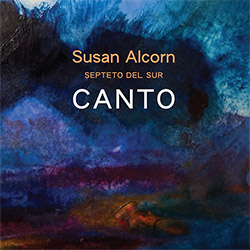

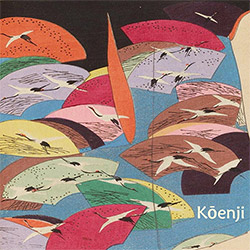

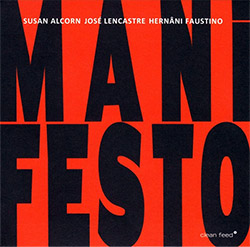
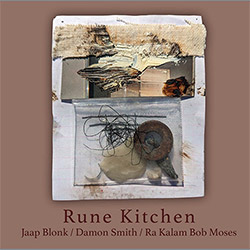
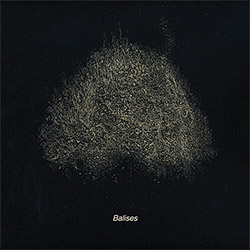

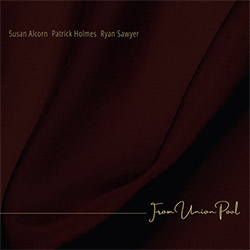

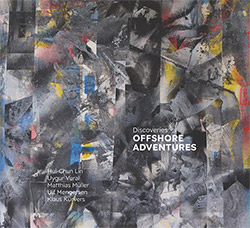











![Deupree, Jerome / Sylvie Courvoisier / Lester St. Louis / Joe Morris: Canyon [2 CDs]](https://www.teuthida.com/productImages/misc4/36404.jpg)


![Eternities: Rides Again [CASSETTE]](https://www.teuthida.com/productImages/misc4/36247.jpg)

![Lopez, Francisco: Untitled (2021-2022) [2 CDs]](https://www.teuthida.com/productImages/misc4/36438.jpg)




![Eventless Plot | Haarvol: The Subliminal Paths [CASSETTE + DOWNLOAD]](https://www.teuthida.com/productImages/misc4/36232.jpg)












![Eventless Plot | Francesco Covarino: Methexis [CASSETTE + DOWNLOAD]](https://www.teuthida.com/productImages/misc4/36231.jpg)



![Das B (Mazen Kerbaj / Mike Majkowski / Magda Mayas / Tony Buck): Love [VINYL]](https://www.teuthida.com/productImages/misc4/36329.jpg)


![Hemphill Stringtet, The: Plays the Music of Julius Hemphill [VINYL]](https://www.teuthida.com/productImages/misc4/36409.jpg)



![Halvorson, Mary Septet: Illusionary Sea [2 LPS]](https://www.teuthida.com/productImages/misc4/17952.jpg)






![Money : Money 2 [2 CDs]](https://www.teuthida.com/productImages/misc4/35894.jpg)




![Klinga, Erik: Elusive Shimmer [VINYL]](https://www.teuthida.com/productImages/misc4/36258.jpg)
![CHANGES TO blind (Phil Zampino): Volume 9 - I Wave on a Fine Vile Mist [CD + DOWNLOAD]](https://www.teuthida.com/productImages/misc4/36061.jpg)

![Wallmart / Rubbish: Asset Protection [split CD]](https://www.teuthida.com/productImages/misc4/35900.jpg)


![+Dog+: The Family Music Book Vol. 5 [2 CDs]](https://www.teuthida.com/productImages/misc4/35897.jpg)
![Kuvveti, Deli : Kuslar Soyledi [CASSETTE w/ DOWNLOAD]](https://www.teuthida.com/productImages/misc4/36107.jpg)

![Nakayama, Tetsuya: Edo Wan [CASSETTE w/ DOWNLOAD]](https://www.teuthida.com/productImages/misc4/36105.jpg)




![Yiyuan, Liang / Li Daiguo: Sonic Talismans [VINYL]](https://www.teuthida.com/productImages/misc4/35957.jpg)
![Brown, Dan / Dan Reynolds: Live At The Grange Hall [unauthorized][CASSETTE]](https://www.teuthida.com/productImages/misc4/36245.jpg)







![Palestine, Charlemagne / Seppe Gebruers: Beyondddddd The Notessssss [VINYL]](https://www.teuthida.com/productImages/misc4/36206.jpg)
![Palestine, Charlemagne / Seppe Gebruers: Beyondddddd The Notessssss [NEON GREEN VINYL]](https://www.teuthida.com/productImages/misc4/36207.jpg)

![Laubrock, Ingrid: Purposing The Air [2 CDs]](https://www.teuthida.com/productImages/misc4/35639.jpg)

![Yoko, Ono / The Great Learning Orchestra: Selected Recordings From Grapefruit [2 CDs]](https://www.teuthida.com/productImages/misc4/35841.jpg)









![Zorn, John / JACK Quartet: The Complete String Quartets [2 CDs]](https://www.teuthida.com/productImages/misc4/35609.jpg)

![Lonsdale, Eden: Dawnings [2 CDs]](https://www.teuthida.com/productImages/misc4/35480.jpg)



![Sorry For Laughing (G. Whitlow / M. Bates / Dave-Id / E. Ka-Spel): Rain Flowers [2 CDS]](https://www.teuthida.com/productImages/misc4/35985.jpg)

![Rolando, Tommaso / Andy Moor : Biscotti [CASSETTE w/ DOWNLOADS]](https://www.teuthida.com/productImages/misc4/36106.jpg)


![Electric Bird Noise / Derek Roddy: 8-10-22 [CD EP]](https://www.teuthida.com/productImages/misc4/35970.jpg)








![Elephant9 : Mythical River [VINYL]](https://www.teuthida.com/productImages/misc4/34624.jpg)



![Elephant9 with Terje Rypdal: Catching Fire [VINYL 2 LPs]](https://www.teuthida.com/productImages/misc4/35355.jpg)
![Deerlady (Obomsawin, Mali / Magdalena Abrego): Greatest Hits [VINYL]](https://www.teuthida.com/productImages/misc4/34876.jpg)







![Surplus 1980: Illusion of Consistency [CD]](https://www.teuthida.com/productImages/misc4/35069.jpg)
![Staiano, Moe: Away Towards the Light [VINYL + DOWNLOAD]](https://www.teuthida.com/productImages/misc4/35037.jpg)
![Coley, Byron: Dating Tips for Touring Bands [VINYL]](https://www.teuthida.com/productImages/misc4/17906.jpg)

![Lost Kisses: My Life is Sad & Funny [DVD]](https://www.teuthida.com/productImages/misc4/lostKissesDVD.jpg)